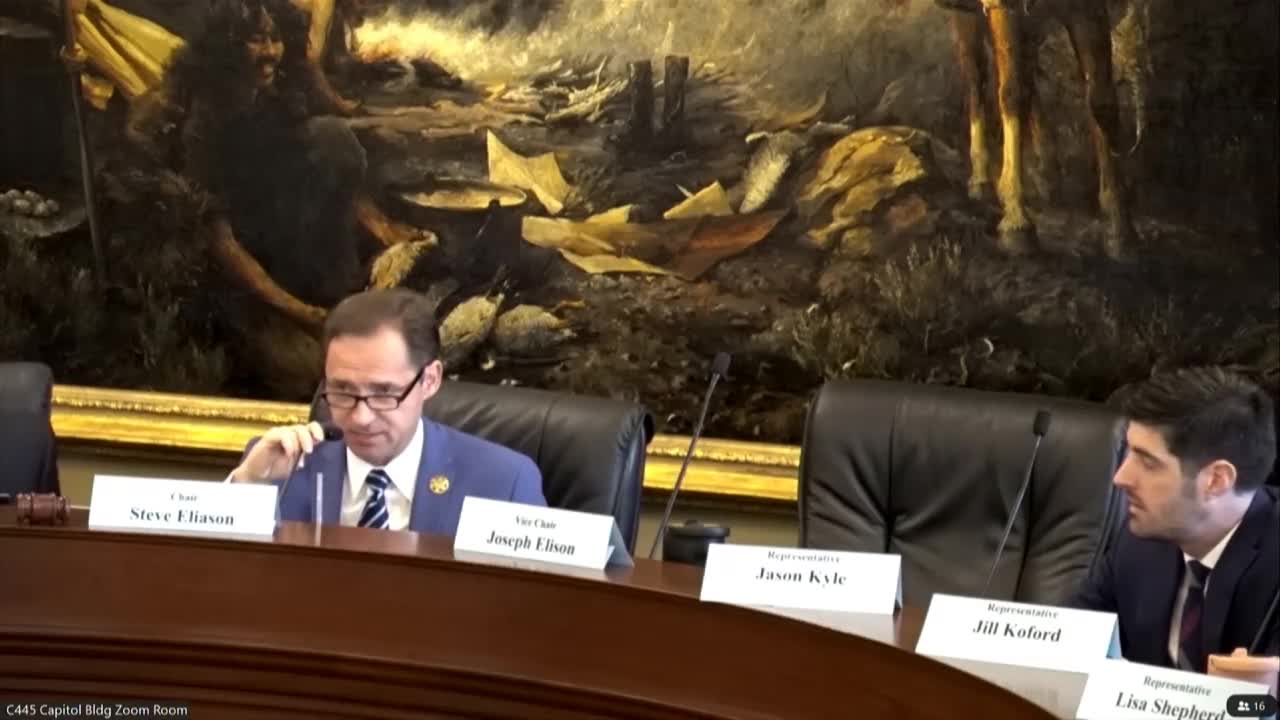Committee adopts substitute for employer childcare tax credit but delays final action
Get AI-powered insights, summaries, and transcripts
Subscribe
Summary
The committee adopted a first substitute to HB 389 to create state income tax credits for employer‑provided childcare (20% construction credit; 10% operating/contract credits). After testimony and debate, members voted to move on to the next item rather than conclude final committee action; sponsor said he will continue to refine the measure.
The House Revenue and Taxation Committee adopted the first substitute to HB 389, a proposal that would create state income tax credits to incentivize employer‑provided childcare, but subsequently the committee voted to move to the next agenda item and deferred final action on a committee recommendation.
Sponsor Representative Thompson described the bill as a supply‑side measure to expand childcare capacity by offering a state tax credit to employers that qualify for the federal employer‑provided childcare credit. The substitute creates two credit types: a 20% credit for qualified construction expenditures (building or expanding childcare facilities) and a 10% credit for qualified childcare expenditures, including operating costs and contracts with third‑party providers. Construction credits may be carried forward up to five years; operating credits may not be carried forward. The credit is nonrefundable.
Supporters — including the Utah Private Child Care Association, the Salt Lake Chamber, United Way of Salt Lake, and employers planning on-site facilities — urged the committee to back the bill as a supply‑side tool to increase local childcare capacity. Stadler US told the committee it could build a facility for about 80 children if the credit made the capital expenditure feasible.
The Utah Taxpayers Association cautioned against targeted credits and urged broader base‑broadening tax cuts instead. Several committee members expressed concern about budget priorities given tight revenue conditions.
Procedural actions: Representative Okerlund moved adoption of the first substitute and the committee adopted it unanimously; later Representative Kyle moved to move to the next agenda item, a motion the committee approved, which effectively postponed a final committee recommendation on passage of the bill. The sponsor said he would continue to work with stakeholders and asked that the bill be scheduled again for consideration.
Next steps: the measure has its first substitute adopted, but the committee deferred a final favorable recommendation and will revisit the bill at a future hearing; the sponsor indicated alignment with federal credit criteria to reduce administrative burden.
